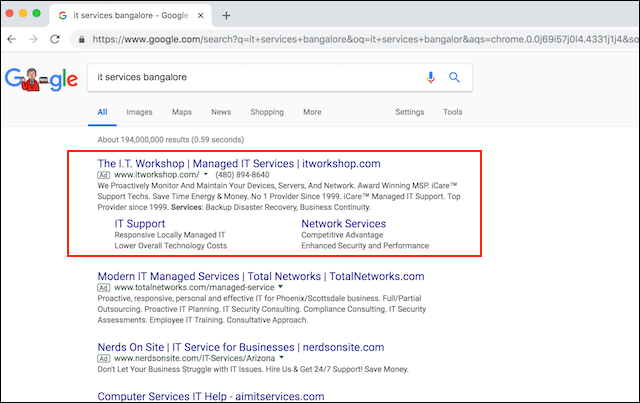The Indian startup ecosystem is the third largest in the world and this gets reflected in the kind of investments the sector has seen. In 2017, a record $13.7 billion was pumped into Indian startups. To make good on the investment, it is imperative that the IT startup sector shore up its marketing abilities. This post will cover five popular techniques any IT company can use to craft an effective marketing strategy.
All you need right here
Most IT pros don’t know much about how to promote their services — they’re IT pros, not marketing people. This list of easy tools should help.
-
Email marketing.
-
Social media.
-
Content marketing.
-
Search engine optimization.
-
Google Ads.
Start using a few of these tools and you’ll be on your way to more contracts.
The challenge for Indian IT startups

Photo: rawpixel on Unsplash
While India is one of the largest and most exciting consumer markets in the world, with a growing population of middle-class consumers that is expected to reach a number of 200 million in 2020, it is a complex one.
Startups face competition from local companies of varying sizes as well as the multinational ones.
Devising a customized marketing strategy that optimally caters to the needs of one’s specific target audience is of the essence here. A few tactics are described below.
1. Email marketing
Email as a promotional tool has been around for awhile and, though its obituary has been written many times in the past, it continues to be used extensively by marketers around the world. There is every reason in the world for IT startups to use this highly effective form of online marketing as well.
The return on investment (ROI) of email marketing is as high as 122 percent.
Uber India for example, sends well-crafted emails to customers with the right kind of background to respond positively to this kind of outreach. Of essence here is a catchy Subject line and direct and impactful messaging.
Related: 10 tips for client engagement through email marketing
2. Social media
Hundreds of millions of new internet users in India access the net through their smartphones. It goes without saying that social media is an extremely important marketing strategy for Indian startups. It increases traffic to their websites, deepens customer loyalty and improves search engine rankings, ultimately leading to increased sales.
Aim for three messages per week. Two of them should be helpful or entertaining, rather than outright promotions.
Choosing the right social media marketing channel is of the essence here. Facebook with its 240 million active users is quite obviously a prime choice (be sure to create a separate business page). If the target market is the well-off professional class, LinkedIn should be the channel where the company in question should register their presence.
Not sure social media is worth the effort? Ask the owners of CYD Tech Lab in Bangalore — they’ll tell you they wish they had done more social outreach in the early days of startup.
3. Content marketing
This can be a real game-changer for Indian IT startups, in that a well-crafted content marketing strategy that encompasses various platforms and channels can act as a great disruptor. Precise and out-of-the-box messaging can help a new business create its own distinct and loyal niche of customers.

Photo: Skye Studios on Unsplash
Some examples of content include:
- A blog post on how to choose an IT service provider.
- Video tutorials on do-it-yourself fixes to common computer/network issues (more ideas).
- An infographic on the IT problems all companies face (and how to fix them).
- Instagram posts featuring the gadgets no modern office should be without.
By strategically placing call-to-action buttons — Request a quote, Call now — on each message, you can drive your potential customers directly to your website. Food delivery app Zomato, for instance, has mastered the art of using interesting pizza infographics across social media channels to attract customers. A similar concept could easily be applied to IT startups.
Be sure to optimise every piece of content you produce for search engines (more on this below). This will attract new leads that otherwise might not come across your business.
4. Search engine optimization
An IT startup is bound to have a great website in terms of its layout, design and features. All of that will come to naught in the absence of an impactful search engine optimization (SEO) strategy. SEO not only increases traffic to your website but enhances your professional credibility online.
SEO encompasses factors like:
- Use of a unique domain name with a country-code extension like .in.
- Adding keywords in the title tag and in meta descriptions.
- Maintaining the right keyword density (use your keywords once for every 100 words) and more.
The internet is awash in step-by-step instructions on how to do SEO yourself, including these.
5. Google Ads
Search engine advertising is a great way of bringing visitors who are primed to buy into one's website.
This tactic is expensive but very effective.

For a startup, it is a very convenient way of acquiring customers, as one can be very specific in one’s targeting and the results are immediate. Besides, one retains control over the advertising budget, under the pay-per-click dispensation.
What's more, you have access to valuable analytics that can help you refine your overall marketing strategy. The recently renamed Google Ads is more amenable to small businesses campaigns, making this time-tested online marketing strategy even more appealing.
Start with a simple marketing strategy
The success of the much-heralded Indian IT startup industry depends upon how well it is able to market its products and services. There are a number of tools available these days to help startups owners effectively find and reach their IT prospects. The ability to combine these into a consistent, effective marketing strategy will impact the success of any business in this sector.
While there is huge potential for IT startups, it is also a fact that an overwhelming majority don’t last beyond five years.
At the end of the day, any IT startup that aims high can succeed — but only if potential clients know about them. With so much riding on the Indian IT startup industry's success, getting the marketing strategy right is something that has to be the top priority.






